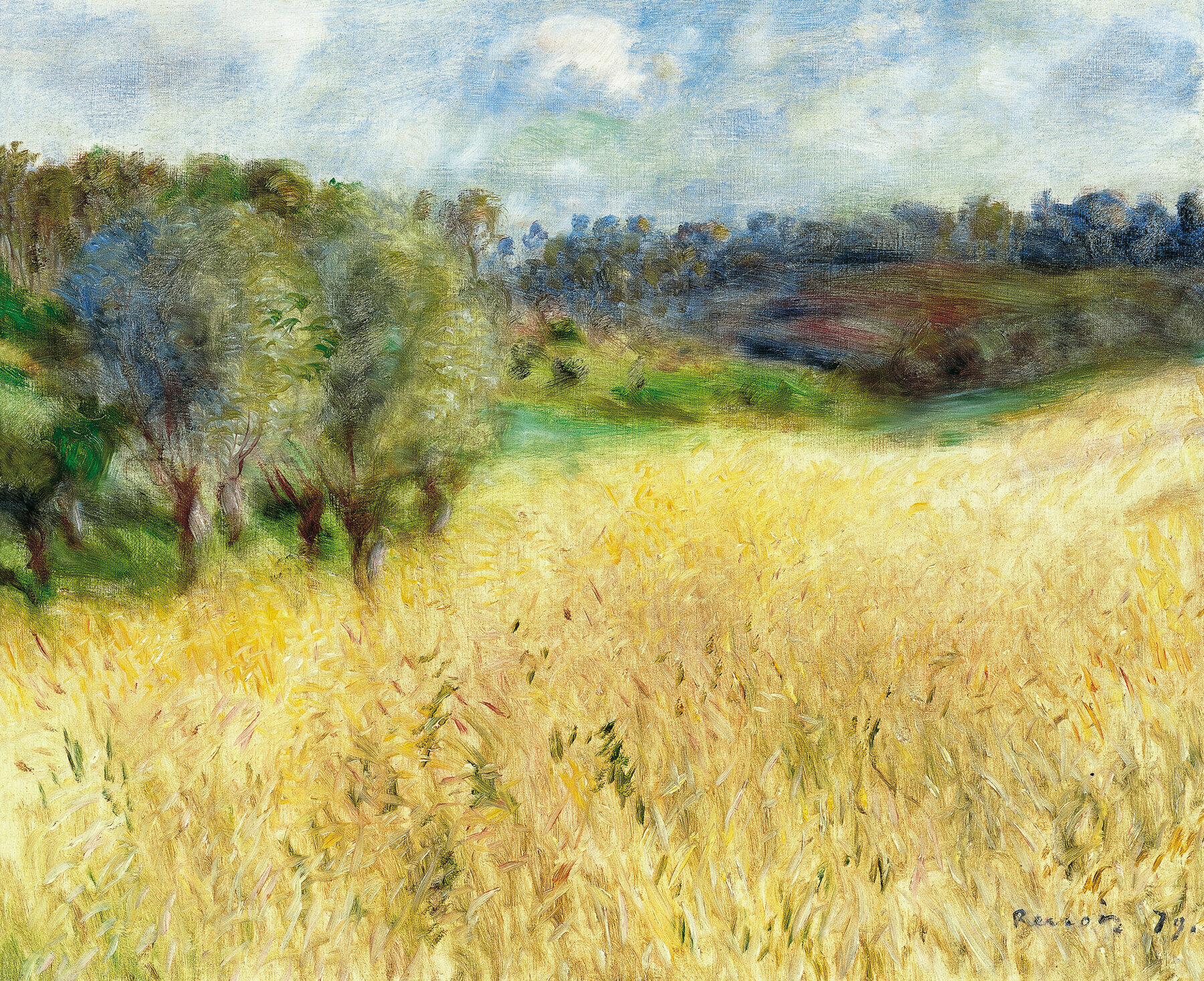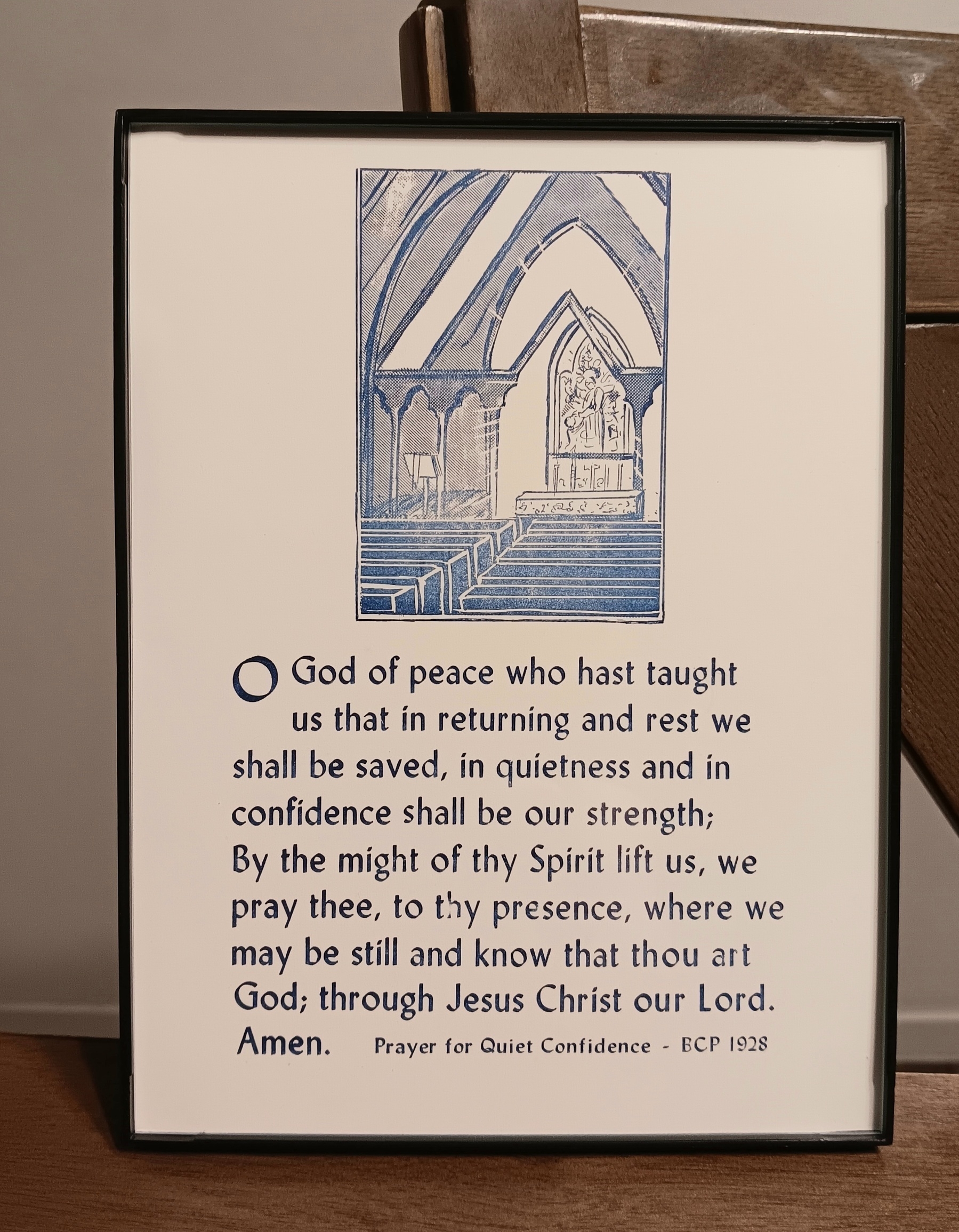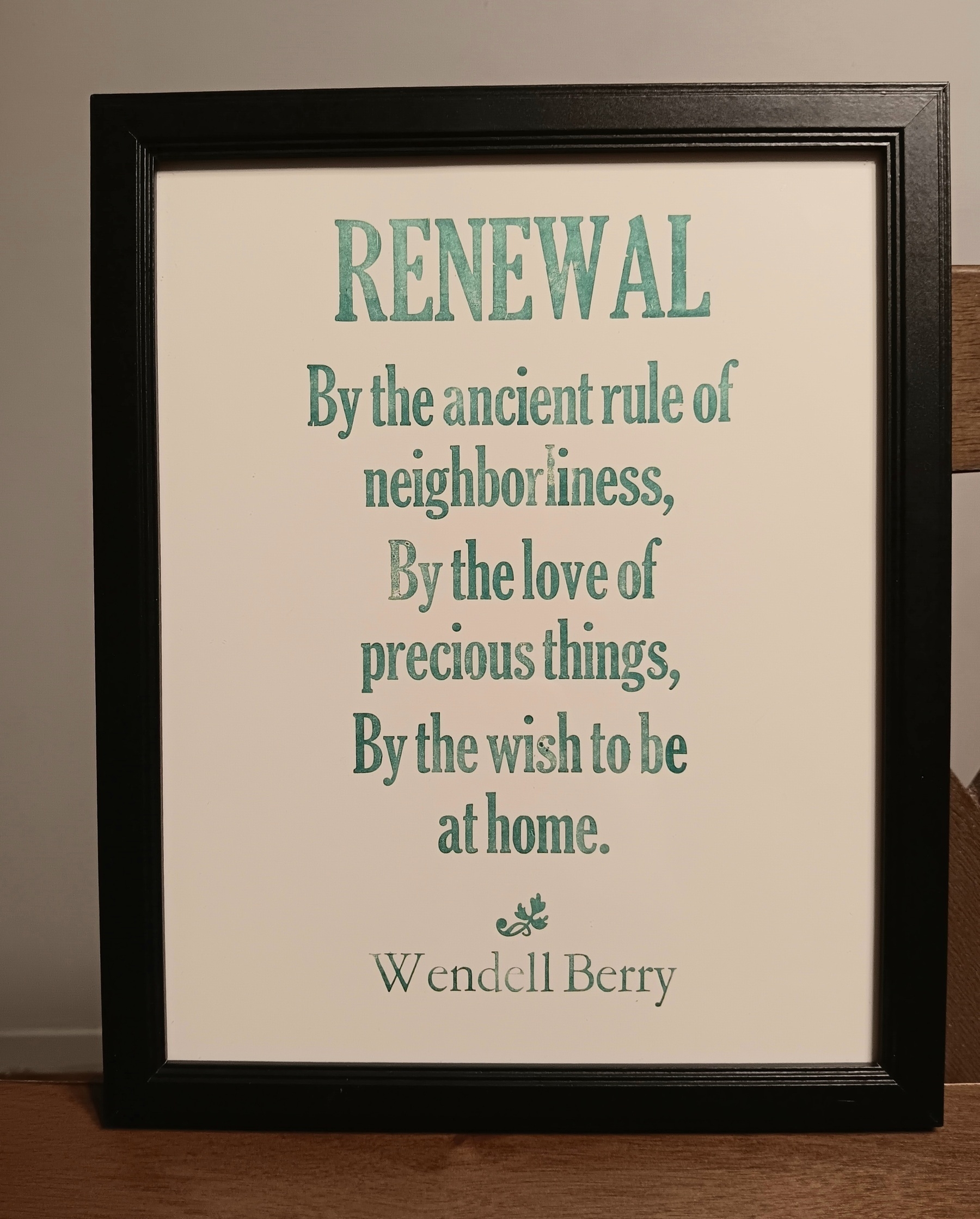Wheatfield (1879) by Pierre-Auguste Renoir:

Wheatfield (1879) by Pierre-Auguste Renoir:

Just finished Catch Me If You Can - sadder than I remembered; curious what connection the movie has to reality (also, the opening credits were great)

Got these wonderful prints from Scale House Print Shop based out of Hartford, Vermont


Why do older people—with almost no exceptions in my experience—call it MACdonalds?

Currently reading: Where the Red Fern Grows by Wilson Rawls 📚

Currently reading: The Community of the King by Howard A. Snyder 📚
Francis Schaeffer, (unintentionally) providing evangelicals with a diagnostic tool for assessing their political engagement (let the reader understand):
In this war [i.e., the spiritual battle between God/Satan, good/evil], if Christians win a battle by using worldly means, they have really lost. On the other hand, when we seem to lose a battle while waiting on God, in reality we have won. The world may mistakenly say, “They have lost.” But if God’s people seem to be beaten in a specific battle, not because of sin or lack of commitment or lack of prayer or lack of paying a price but because they have waited on God and refused to resort to the flesh, then they have won.
Francis Schaeffer, on the central problem facing the church in every age:
The central problem of our age is not liberalism or modernism, nor the old Roman Catholicism or the new Roman Catholicism, nor the threat of communism, nor even the threat of rationalism and the monolithic consensus that surrounds us. All these are dangerous but not the primary threat. The real problem is this: the church of the Lord Jesus Christ, individually or corporately, tending to do the Lord’s work in the power of the flesh rather than of the Spirit. The central problem is always in the midst of the people of God, not in the circumstances surrounding them.
Obviously, Schaeffer’s list of “-isms” appears rather dated to our eyes, but that only serves to throw his point into sharper relief: the external threats are never as important as the manner in which the church responds to them. Alan Jacobs made a similar point on his blog a while back: “In any given community, there will be a profound divide between those who believe that the most dangerous lies are the ones told by our enemies and those who believe that the most dangerous lies are the ones we tell ourselves.” I believe that (in many cases) you can tell fairly quickly if a person would agree with Schaeffer (and Jacobs) on this question—or not. The implications are far-reaching indeed.
A Christian can never say, “I knew the power of the Holy Spirit yesterday, so today I can be at rest.” It is one of the existential realities of the Christian life to stand before God consciously recognizing our need. […]
Christians must humble themselves to know the sanctifying power of the Holy Spirit. To the extent that we do not humble ourselves, there will be no power of the Holy Spirit in our lives. The Lord’s work in the Lord’s way is the Lord’s work in the power of the Holy Spirit and not in the power of the flesh.

Currently reading: The Lord’s Work in the Lord’s Way and No Little People by Francis A. Schaeffer 📚